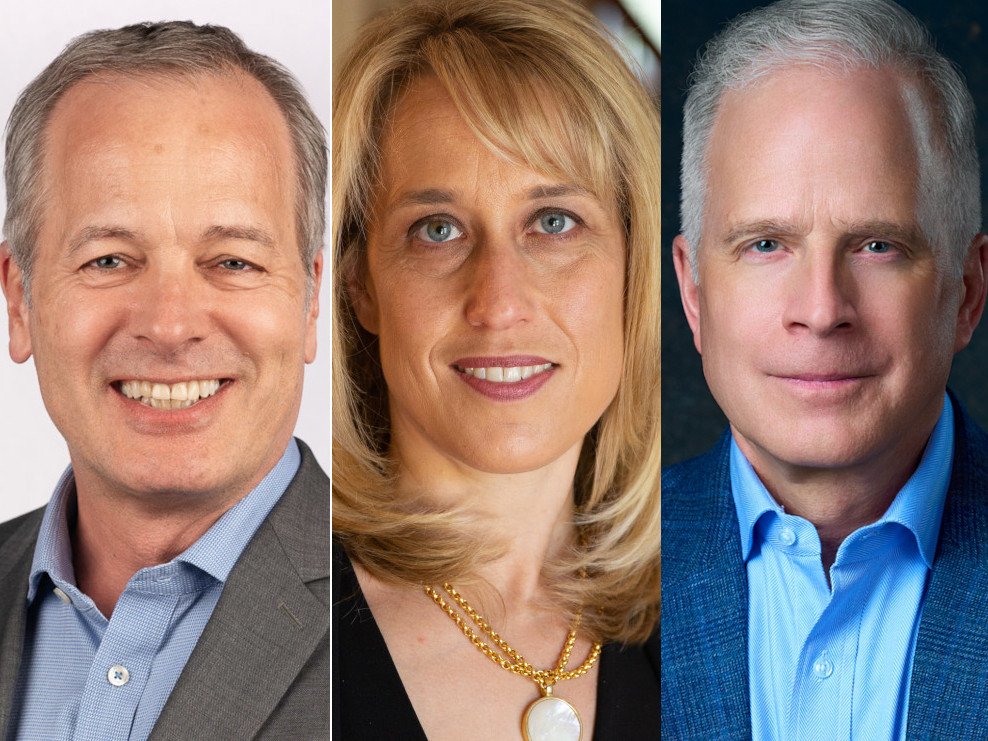Christopher Foster knows his firm has succeeded in its mission when, during phone calls, his clients don’t bring up investing.
“When clients stop stressing about their portfolio or their estate issues, comfortable that they’re in good hands, I feel a silent satisfaction,” says Foster, who is CEO and director of Foster & Associates Financial Services Inc. in Toronto. “The best is when we have to badger them to come to a quarterly portfolio review.”
How do family offices know if they’re doing well? Canadian Family Offices spoke to a number of executives and advisors about how they measure success.
And one metric stood out: a high level of client satisfaction. While profitability, providing financial education, staying on top of investment and regulatory trends, and a growth mindset were listed as markers of success, the overarching goal was to exceed client expectations and deliver high-quality service in an increasingly competitive marketplace.
“To consistently meet and exceed our clients’ unique and ever-evolving needs, we must first define what success looks like,” says Martha Simmons, co-chief operating officer at Forthlane Partners in Toronto.
“By establishing clear benchmarks and priorities, we ensure that our efforts remain aligned with what truly matters: delivering exceptional service, fostering trust and achieving meaningful financial outcomes for our clients.”
The metrics of success
“Obviously, profitability is key,” acknowledges Foster. But he says that with the entrance of new players into the space, the focal point for top family offices has been to set themselves apart through the provision of exceptional customer services, financial education and tailored offerings.
Setting specific benchmarks and measuring performance is also essential, says Foster. “It’s pretty hard to prioritize your offering if you don’t know what you’re trying to accomplish,” he says.
Here are some metrics family offices employ:
Providing education: Satisfying the demands of larger and more complex families—by tracking each regulatory or tax change, keeping them abreast of financial trends or developing a risk matrix—is top of mind for Foster. “Being able to re-educate our clients about these issues is immensely satisfying, and good business,” he says. “Unless they have truly dealt with succession, key person risk, market risks and even cybersecurity, we haven’t really done our jobs. If we can get all that stuff nailed down, that defines success.”
Meeting client goals: Helping clients to achieve their goals, such as building and deploying their financial and non-financial capital, is a big measure of success, says Don Steele, founder and principal advisor of Sterling Family Capital in Toronto. “We’re trying to respond to the question, ‘How do we provide the advice and support that our client families need to be successful in the way they think of success?’” he says.
Building networks: Steele says his firm uses its decision-making capabilities and ability to collaborate with external advisors as measures of success. “We’ve worked hard to develop a network of advisors who are leaders in their respective fields and who really buy into the integrative nature of wealth management,” he says.
Tracking performance: Simmons says that client feedback is a big part of measuring—and tweaking—performance. She says that Forthlane makes adjustments whenever necessary to enhance a client’s experience and investment outcomes. “On the investment side, we apply a rigorous and proactive approach to portfolio management, conducting continuous deep diligence and monitoring,” she says. “If an investment manager or specific investment or asset class is not delivering the performance we expect, or meeting the evolving needs of our clients, we have the flexibility to reallocate capital as needed.”
Referrals: The highest praise is when a client refers a friend, colleague or family member to the firm, says Simmons. “These actions reflect the strength of our relationships.”
Legacy building: Steele says that while his family office uses standard financial metrics, such as risk-adjusted returns within liquidity constraints on the investment side, it also measures non-financial measures of success in areas such as education of inheritors, leadership development for successors in a legacy business and philanthropic impact.
Awareness of competitors: Comparing one’s performance with other firms is difficult, as each family office is unique and their work is confidential. But it could be helpful. “To a limited extent, we do look at how our practice-area capabilities line up against comparable areas in other firms,” says Steele. Tracking the best practices emerging out of the U.S. or Europe—where the family office model is more established—is another key to staying current, he adds.
Foster likens keeping tabs on the competition to driving a vehicle. “We think about our competitors like driving down the highway: we’re aware of the speed and manoeuvres of other cars, maybe even the make, model and colour, but we don’t fixate on them,” he says. “We want to focus on the road conditions and our own lane and dashboard, so we get our clients to their destination safely.”
A growth mindset. Steele says success is a “moving target.” He says the virtue of the business—how families require ever-more-nuanced solutions—requires a commitment to constant learning and change. “We can only serve those needs if we’re constantly asking ourselves what it means for our families to be successful now and out beyond the horizon,” he says. To that end, his firm employs a “continuous improvement” mindset by participating in industry groups, attending conferences and keeping up to date with evolving best practices in the family office space.
Simmons agrees that constant refinement is critical in an industry that is changing so rapidly. “Defining success is not just about tracking performance; it’s about sharpening our focus on our greatest strengths and continuously refining our approach,” she says. “It allows us to differentiate ourselves in a competitive landscape.”
The Canadian Family Offices newsletter comes out on Sundays and Wednesdays. If you are interested in stories about Canadian enterprising families, family offices and the professionals who work with them, but like your content aggregated, you can sign up for our free newsletter here.
Please visit here to see information about our standards of journalistic excellence.



